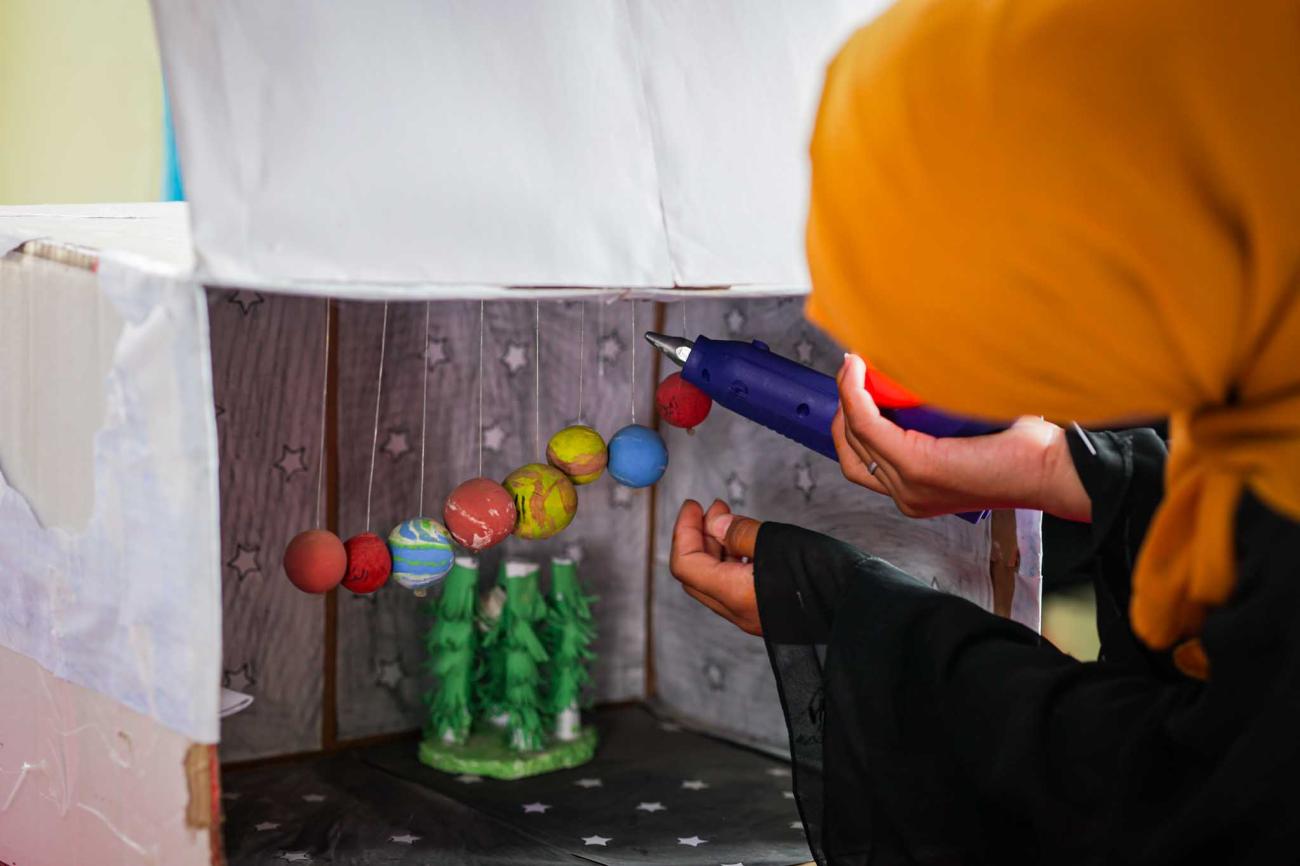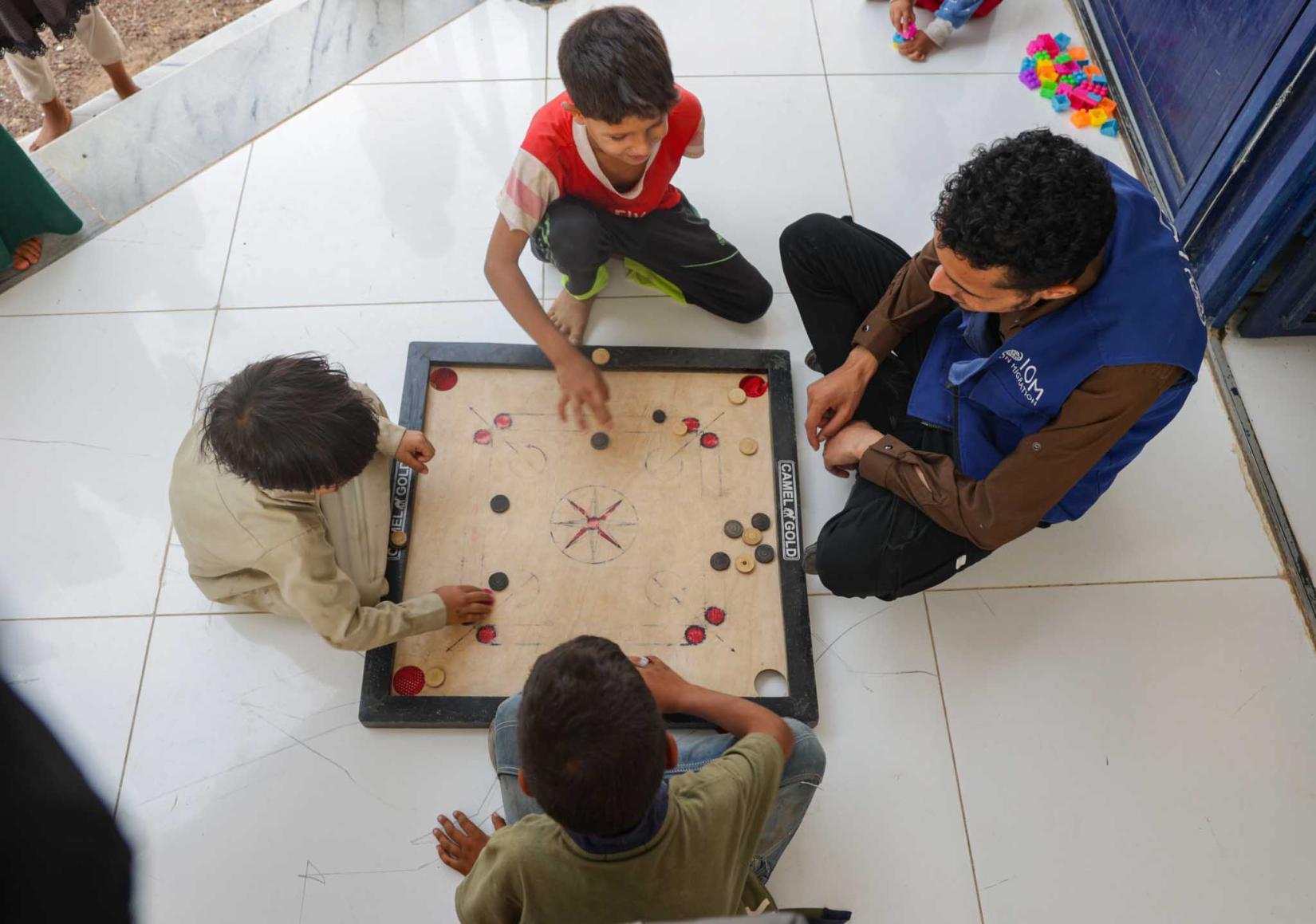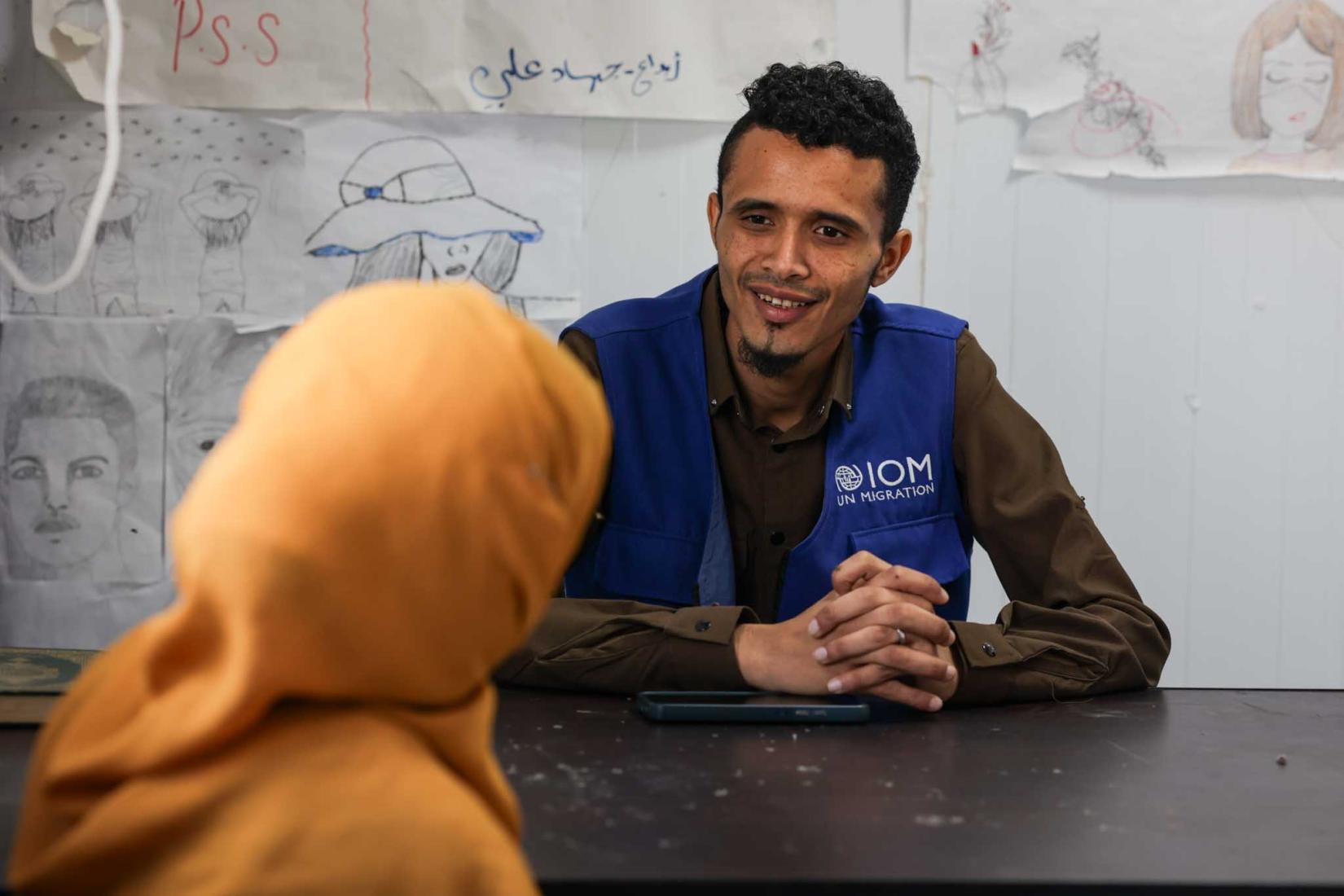IOM Yemen: Quiet Wounds - The Hidden Struggles of Displaced Children in Yemen

The Hidden Struggles of Displaced Children in Yemen
Ma’rib, Yemen
In a country scarred by over a decade of conflict, Yemenis carry burdens far heavier than what’s visible. The fighting has taken lives and livelihoods, but it has also frayed the fabric of mental and emotional well-being. For many displaced families, the hardest battles are not always the loudest ones.
Thirteen-year-old Etesam remembers a a more peaceful time. Her days once revolved around school, laughter, and games with her brother at home. Her father, Esam, worked as a carpenter in a small workshop, carving wood into beautiful pieces. Her mother, Rasheda, spent her afternoons sewing, stitching colour and love into every corner of their home. Each evening, the family would gather for dinner, sharing stories and laughter that wrapped their house in warmth.
That life came to a halt when the war reached their doorstep in Dhamar Governorate. As fighting intensified, the family’s sense of safety quickly gave way to fear. With the situation growing more dangerous, they had no choice but to flee. The home they had built – along with the comfort and security it once offered – was left behind.
Eventually, Etesam’s family reached Al Jufainah, Yemen’s largest displacement site, home to more than 15,000 families. Life there is harsh: the heat is relentless, shelters are improvised from whatever is available, and basic services are scarce. For most families, every day is a struggle just to put food on the table.
“I missed my children’s laughter that once filled our home. I was consumed by worries about how I would provide for my family’s basic needs.” – Rasheda, Displaced Mother

Unseen Battles
It weighed heavily on Rasheda to see her husband Esam slipping further into gloom and disappointment. In the midst of uncertainty, she turned back to sewing, determined to stitch some semblance of stability into their lives. Yet nothing had prepared her for the depth and lasting effects of displacement on her family.
For Etesam, school became a daily battlefield. She felt trapped between her father’s stern expectations and the relentless bullying from classmates who mocked her family’s financial struggles. Unable to afford basic school supplies, she was singled out, her family’s hardship turned into a source of shame. Each morning began with tearful complaints and pleas to avoid school.
“I started noticing that my daughter would come up with any excuse to stay home or she’d cry until I let her,” recalls Rasheda. “Teachers tried to help, but their attention seemed to only make her withdraw further.”
Within weeks, the spirited girl who once laughed and played with neighbourhood friends began to isolate herself completely. Calls from her mother went unanswered; often, Rasheda would find Etesam locked in her room or hidden in the bathroom, silently crying. Teachers reported similar behaviour at school, noting that Etesam would frequently hide under her desk, quietly weeping.
As days passed, Etesam’s inner turmoil deepened, causing her to retreat further into herself. Social withdrawal became the norm and her once bright curiosity faded, replaced by profound sadness. Rasheda watched helplessly, unsure how to reach her daughter.
“I didn’t want to see anyone or even leave my room. It felt as if the walls were closing in on me and the only thing I could think about was running away from everyone.” – Etesam, Rasheda’s Daughter

Overcoming Stigma
In Yemen, cultural stigma around mental health remains strong, reinforcing the misconception that psychological support is only needed for those with severe mental health issues. This belief discourages many from expressing their struggles openly, forcing them to endure in silence. Displaced communities, already vulnerable due to conflict, often face additional barriers in seeking mental health support.
“In the beginning, it was very hard for my daughter to live in a community where people believed she had lost her mind,” Rasheda confesses. “Our neighbours constantly advised us to avoid mental health centers.”
As the demand for mental health support increased with the prolonged crisis, the International Organization for Migration (IOM) stepped in to assist vulnerable communities. Thanks to the establishment of a Mental Health and Psychosocial Support (MHPSS) centre in Al Jufainah, IOM now provides essential services designed to help individuals and families manage the emotional toll caused by conflict and displacement.
Amid these hardships, Rasheda discovered the support available at IOM’s centre in Al Jufainah. Seeing her daughter consumed by anxiety and distress, she decided to seek professional help.
“I realized mental health issues that mental health struggles deserve the same specialist care as physical illnesses,” explains Rasheda. “All I wanted was a place that could give my daughter the support she needed.”

Paths to Healing
Sameh Ajlan, an IOM Psychosocial Support staff, plays a vital role at the centre, warmly engaging with those who visit. His gentle demeanor and dedication have helped raise awareness about the importance of mental health support in the community. In child-friendly spaces, Sameh and his colleagues support children and families coping with trauma, stress, depression, and other mental health challenges.
“Every time a child smiles again, I’m reminded why mental health matters,” explains Sameh. “Children deserve to live in peace everywhere, not only in these friendly spaces.”
Through individual and group sessions, Sameh’s team helps participants develop coping strategies and emotional resilience. They also offer case management, referring individuals to specialized care when needed. Like many children at the centre, Etesam found solace through continuous psychological counseling and therapy. Gradually, she began reclaiming her confidence and reconnecting with those around her.
“Now I feel close to my family and friends again,” says Etesam. “I’m no longer ashamed and being back at school feels like I’ve found a part of myself I thought was lost.”

